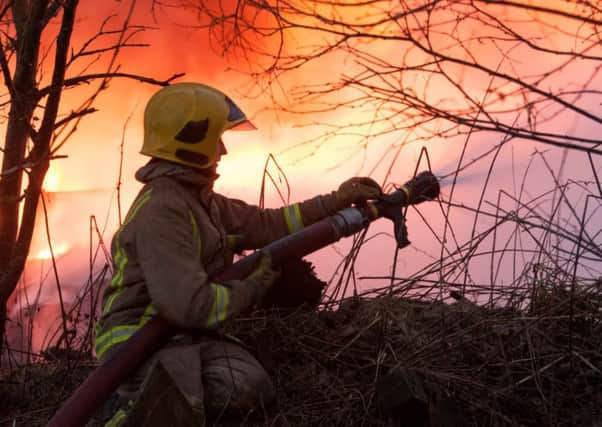A chimney sweep could save lives


Chimney Fire Safety Week will hopefully cut down on more than 1000 chimney fires the service is called out to deal with each year.
Many people who live in homes with open fires fail to realise the importance of properly maintaining chimneys, but having a certified sweep clear the flue makes disaster much less likely to strike.
Advertisement
Hide AdAdvertisement
Hide AdAs the services director for prevention and protection I know soot and fuel residues can slowly build up over time and these leftovers can catch fire. This could send burning soot into the living room or start a fire that takes hold within the roof or on other floors of the house.
Even if it doesn’t burn the house down, a chimney fire can leave a huge mess, so making sure a chimney is professionally swept and checked can significantly reduce the chance of a fire happening.
The type of fuel burned in a fire determines how often the chimney should be swept.
Where smokeless coals are burned the chimney should be swept at least once each year, while fires burning bituminous coal or peat need to have the chimney swept twice per year.
Advertisement
Hide AdAdvertisement
Hide AdA chimney serving a fire where wood is burned should be swept quarterly when it is in use.
We would strongly discourage people from burning wet wood as it can cause a build-up in the flue and ultimately a chimney fire.
Flammable liquids, such as petrol or paraffin, should never be used to light a fire.
Things like paper or rubbish should not be burned in the grate and it’s also important the fire isn’t overloaded with fuel.
Advertisement
Hide AdAdvertisement
Hide AdUsing a spark-guard when the fire is unattended will prevent embers setting fire to furniture or carpets.
Defects in a chimney can also cause fires, so people are encouraged to go into the loft or roof space occasionally to check the chimney while the fire is alight.
This will allow them to check for soot coming from cracks, defective brickwork or mortar joints.
Taking these steps prior to the winter months, when fires are likely to be in greater use, will help prevent emergencies from happening – but if a fire does strike then early warning is crucial.
Advertisement
Hide AdAdvertisement
Hide AdSFRS is clear every home needs to be protected by working smoke alarms on every level of the property.
Additional smoke alarms in living rooms and bedrooms, as well as heat alarms in kitchens, increase fire safety by providing people with further early warning in the event of a fire starting.
Visit www.firescotland.gov.uk for more information.